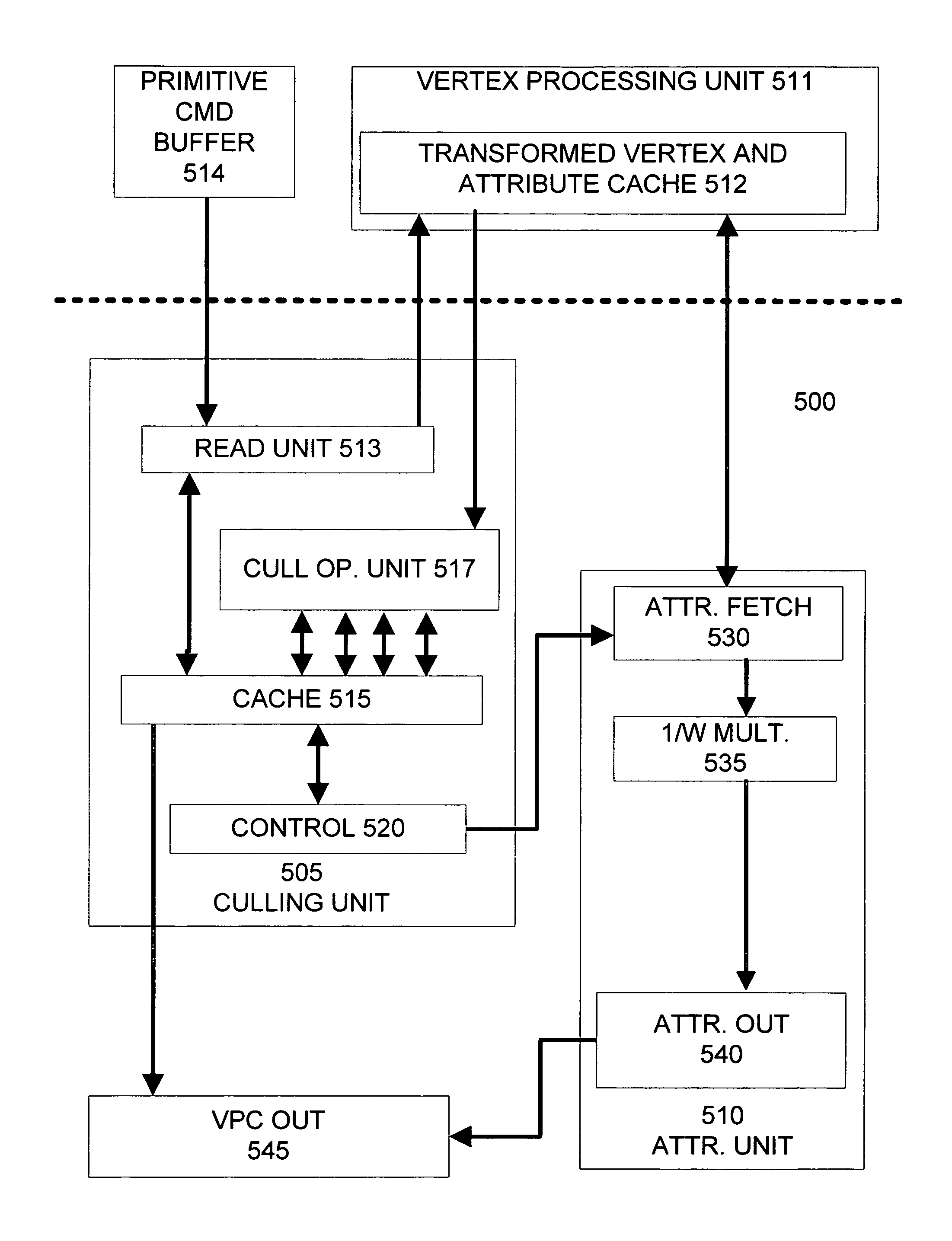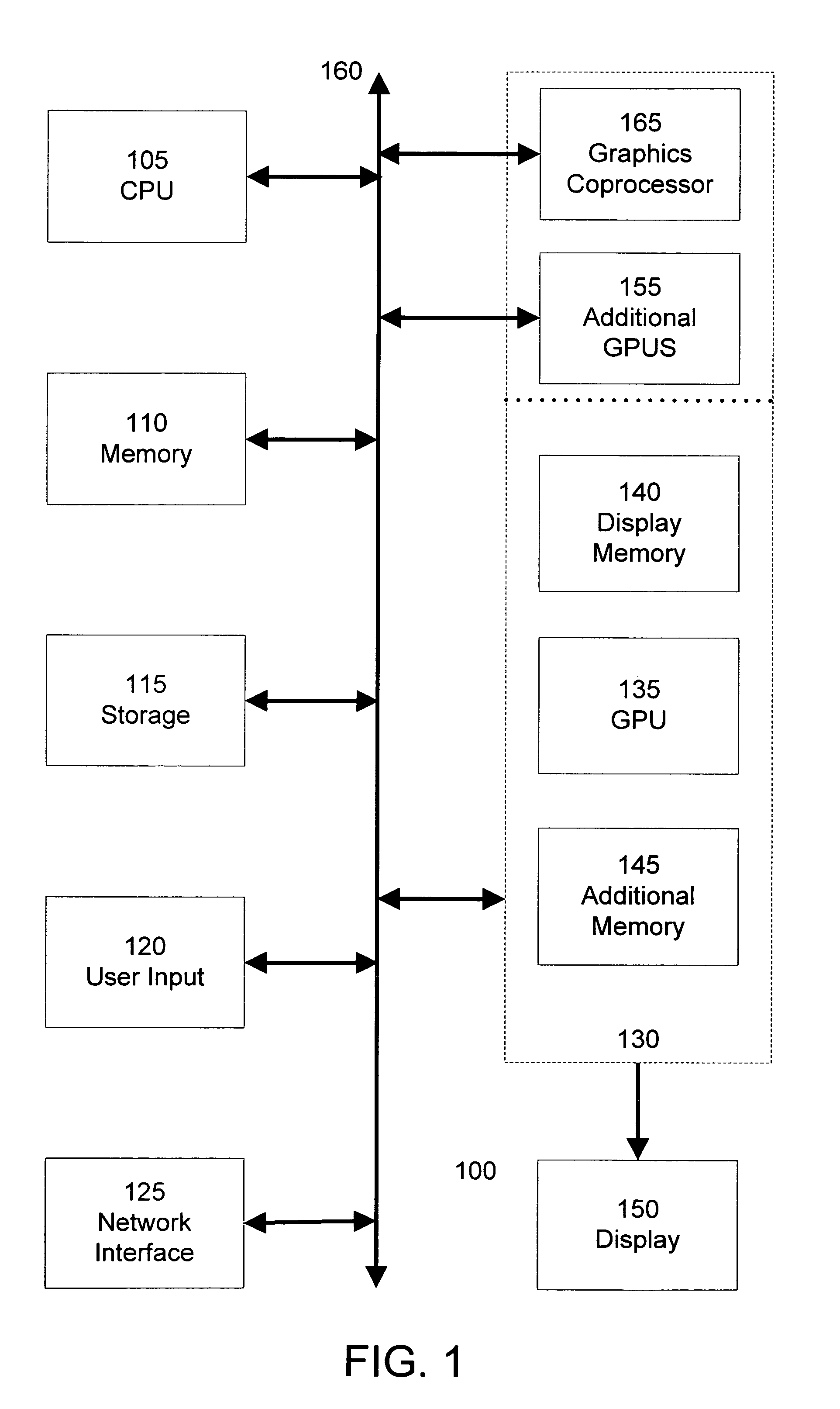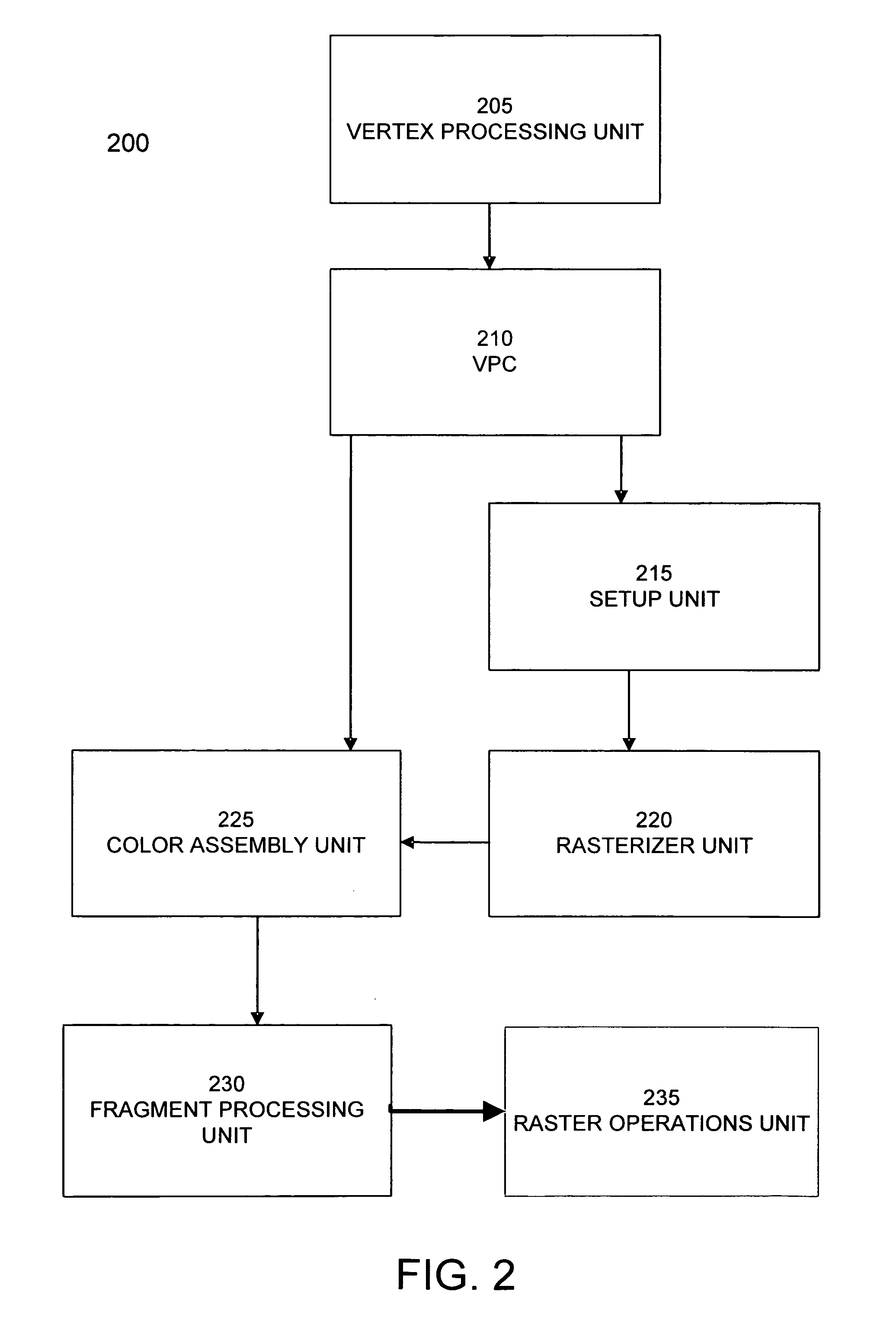Cull before attribute read
a technology of attribute read and attribute limit, which is applied in the field of computer graphics, can solve the problems of reducing the complexity of the vpc unit by limiting, and achieve the effect of reducing the complexity of the vpc unit and minimizing memory bandwidth
- Summary
- Abstract
- Description
- Claims
- Application Information
AI Technical Summary
Benefits of technology
Problems solved by technology
Method used
Image
Examples
Embodiment Construction
[0021]FIG. 1 is a block diagram of a computer system 100, such as a personal computer, video game console, personal digital assistant, or other digital device, suitable for practicing an embodiment of the invention. Computer system 100 includes a central processing unit (CPU) 105 for running software applications and optionally an operating system. In an embodiment, CPU 105 is actually several separate central processing units operating in parallel. Memory 110 stores applications and data for use by the CPU 105. Storage 115 provides non-volatile storage for applications and data and may include fixed disk drives, removable disk drives, flash memory devices, and CD-ROM, DVD-ROM, or other optical storage devices. User input devices 120 communicate user inputs from one or more users to the computer system 100 and may include keyboards, mice, joysticks, touch screens, and / or microphones. Network interface 125 allows computer system 100 to communicate with other computer systems via an e...
PUM
 Login to View More
Login to View More Abstract
Description
Claims
Application Information
 Login to View More
Login to View More - R&D
- Intellectual Property
- Life Sciences
- Materials
- Tech Scout
- Unparalleled Data Quality
- Higher Quality Content
- 60% Fewer Hallucinations
Browse by: Latest US Patents, China's latest patents, Technical Efficacy Thesaurus, Application Domain, Technology Topic, Popular Technical Reports.
© 2025 PatSnap. All rights reserved.Legal|Privacy policy|Modern Slavery Act Transparency Statement|Sitemap|About US| Contact US: help@patsnap.com



